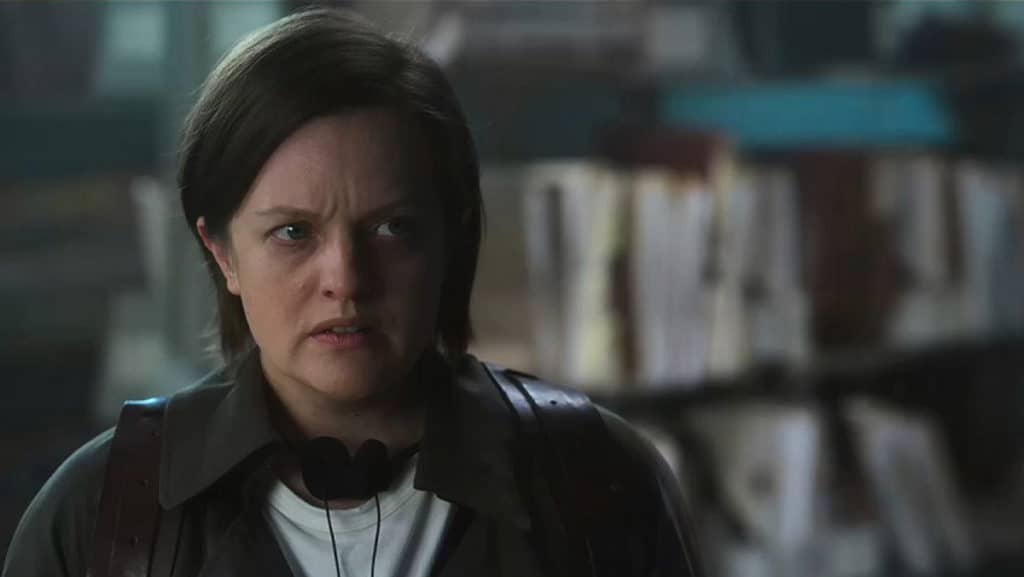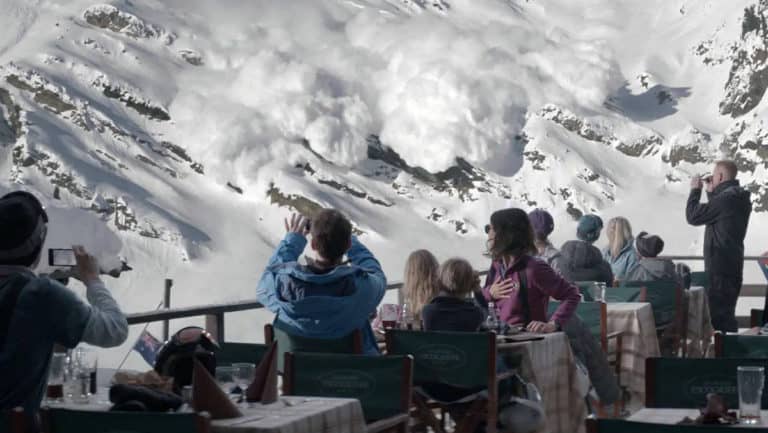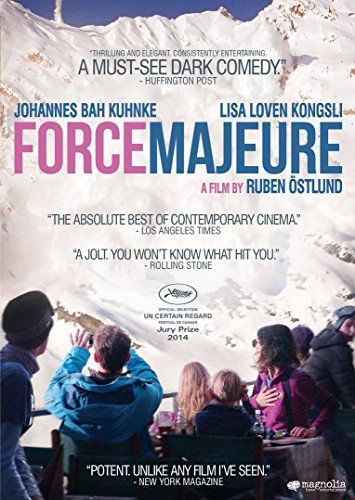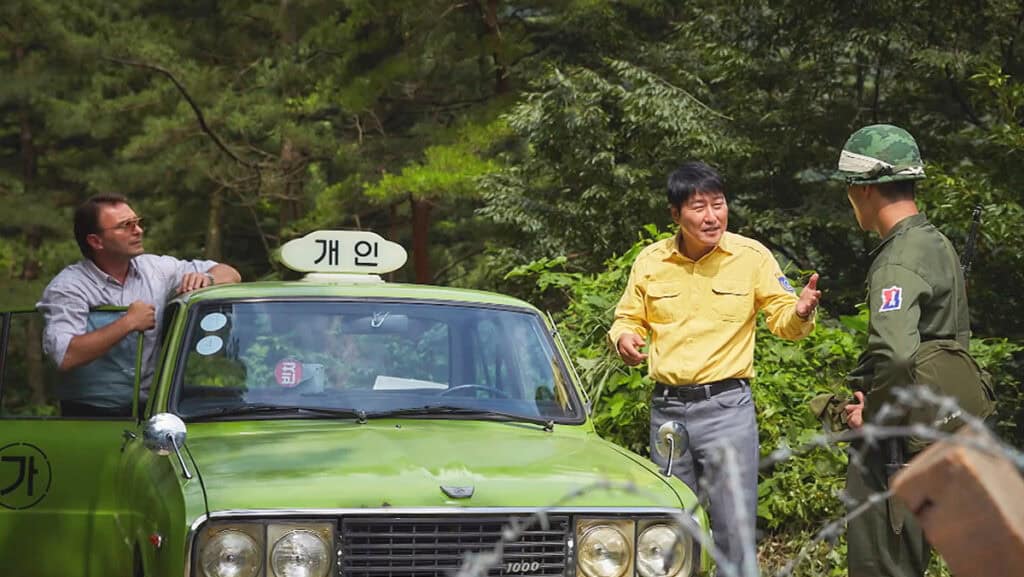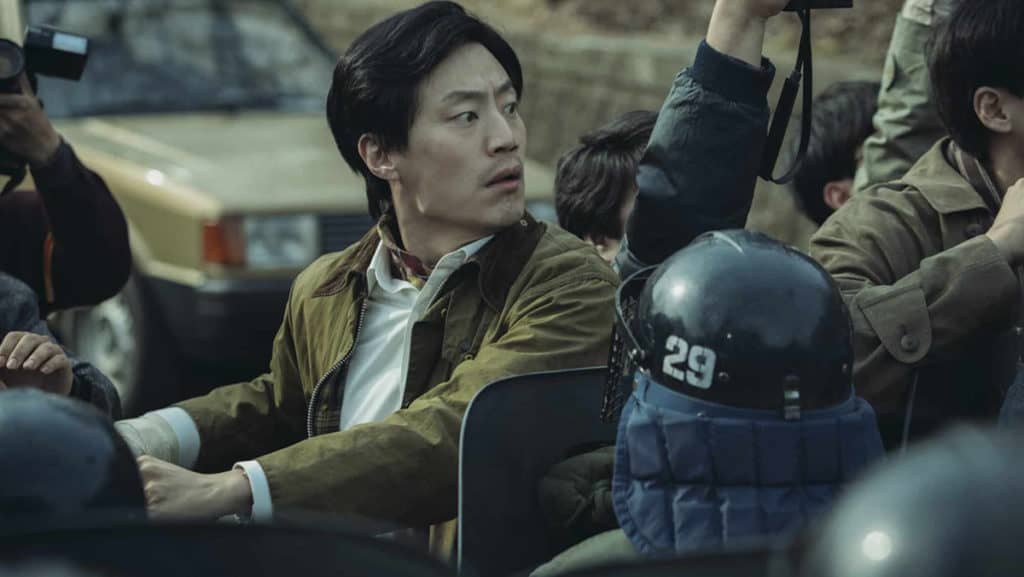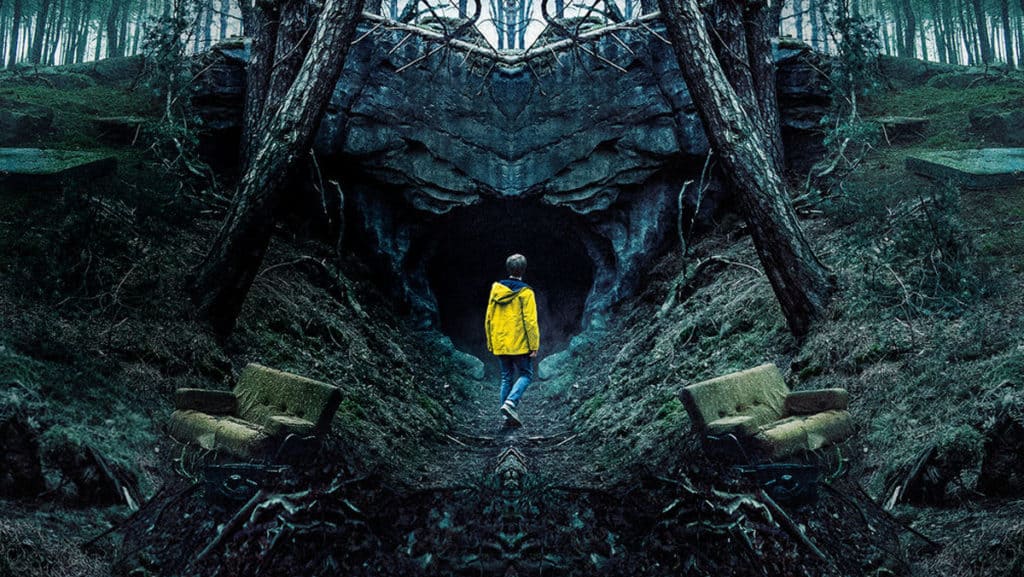Ruben Östlund’s Force Majeure (2014) is a sharp and darkly humorous examination of responsibility, power, and human nature in moments of crisis. The film captivated audiences at the Cannes Film Festival, receiving widespread critical acclaim. With meticulous precision, Östlund dissects human fragility, blending it with biting satire and an unflinching gaze that challenges societal norms.
The story follows a Swedish family vacationing in the Alps. The opening scenes present a picture of perfection: breathtaking winter landscapes, a seemingly harmonious family, and a life of affluence. Their luxurious hotel, stylish attire, and relaxed demeanor all hint at stability and privilege. However, this idyllic facade is shattered by a single moment of crisis.
As the family enjoys lunch on a scenic restaurant terrace, an explosion triggers a controlled avalanche that appears to rush toward them at alarming speed. Panic ensues. Tourists capture the moment on their cameras, but Tomas (Johannes Kuhnke), the father, reacts instinctively—grabbing his phone and running for safety, leaving behind his wife, Ebba (Lisa Loven Kongsli), and their children. When the snow settles, it becomes clear that there was no real danger. Yet, the emotional and psychological damage has already been done. This split-second decision unravels their marriage, forcing them to confront uncomfortable questions about trust, responsibility, and the roles they play within their family.
The Weight of a Title: Force Majeure
The term Force Majeure comes from French and refers to an unforeseeable and uncontrollable event that prevents one from fulfilling obligations. While the original Swedish title, Turist, is more neutral, the international title is a deliberate and fitting choice. It metaphorically reflects the unpredictable nature of human relationships, illustrating how, in moments of crisis, the forces that define identity and trust can spiral beyond control.
Johannes Kuhnke and Lisa Loven Kongsli deliver outstanding performances, navigating the subtle tensions that build through everyday conversations. Östlund crafts a script that extracts conflict from mundane interactions, exposing the fragility of human relationships with masterful precision. Tomas’s instinctive flight in the face of danger challenges the traditional expectations of masculinity. He is supposed to be the protector of his family, the unwavering pillar of strength. Yet, when the moment of truth arrives, he falters. His actions sow the seeds of doubt in his wife and children, slowly eroding the trust that once held them together. As Tomas struggles to justify himself, he spirals into a cycle of denial and guilt, a predicament that Östlund presents with sharp irony. At first, the film invites the audience to view Tomas as a coward, a man undone by fear. But as the story progresses, Östlund subtly shifts the perspective, forcing viewers to reconsider: Was Tomas’s reaction truly a failure of character, or was it simply an instinctive human reflex? This question lingers, offering an unvarnished portrayal of a modern family—stripped of heroism, defined instead by vulnerability and contradiction.

Masculinity in Crisis: A Commentary on Modern Society
What sets Force Majeure apart is its bold critique of masculinity and the societal expectations surrounding it. Tomas’s failure to embody the ideal of the heroic man is not just a personal crisis—it reflects a broader commentary on the fragility of modern masculinity. In a world where survival instincts are rarely tested, the film questions whether the comforts of contemporary life have rendered individuals weak, detached from their primal instincts. Beyond its intimate family drama, Force Majeure also critiques modern European society. A family that appears privileged and successful is suddenly thrown into existential turmoil over a single, seemingly minor event. Östlund suggests that in a world of security and predictability, even the smallest disruption can expose deep insecurities. The film asks: Do moments of crisis peel away our carefully constructed identities and reveal our truest selves?
One of the film’s greatest strengths is its ability to balance tension and humor. Östlund employs long, uninterrupted takes, minimalist framing, and prolonged silences to craft situations that are both unsettling and absurdly comical. A prime example is the scene in which Tomas breaks down in front of his family, sobbing uncontrollably as he confesses his helplessness. The moment is deeply emotional yet laced with bitter irony, as the family’s discomfort turns what should be a cathartic confession into an almost comedic spectacle. Östlund masterfully exposes the contradictions of human emotion—how vulnerability, when placed under the wrong lens, can become awkwardly laughable.
The Fragility of Relationships Framed by Nature
The cinematography, led by Fredrik Wenzel, contrasts the grandeur of the Alps with the cold sterility of the ski resort. The towering, majestic mountains stand as a silent witness to human frailty, reinforcing the film’s central themes. The vast, indifferent landscape dwarfs the characters, emphasizing their emotional isolation. Editor Jacob Secher Schulsinger enhances this tension with carefully orchestrated pauses and silences, allowing the audience to fully absorb the weight of the characters’ emotions. The editing is not merely functional but psychological, subtly guiding the viewer’s perception of shifting power dynamics within the family. Instead of relying on overt exposition, the film lets the smallest gestures—a glance, a sigh, a moment of hesitation—carry profound meaning.
A Thought-Provoking Examination of Human Nature
Force Majeure is more than a film about a marital crisis—it is a mirror reflecting the vulnerabilities, insecurities, and contradictions within us all. With remarkable precision, Östlund transforms a seemingly simple premise into a profound meditation on human nature. He challenges us to confront uncomfortable truths about identity, responsibility, and the roles we play in our relationships. Tomas’s reaction to the avalanche is the defining moment of the film, but its impact goes beyond his personal failure. It serves as a broader commentary on how fragile our self-perception is—how easily it can be dismantled by a single unexpected moment. Ultimately, Force Majeure compels its audience to ask: In a crisis, do we remain the people we believe ourselves to be? Or does the truth emerge only when we are forced to face the avalanche?
With its sharp observations, dark humor, and masterful storytelling, Force Majeure lingers long after the credits roll—urging viewers to reconsider their own moral dilemmas, personal truths, and the unpredictable forces that shape their lives.
